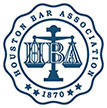Oil Field Accident Attorney in Houston

Our Houston Oilfield Accident Law Firm Can Help You
The drilling and extraction process for petroleum products is complicated and intense, making oilfield accidents among the deadliest of all workplace accidents in Texas. Data from the U.S. Department of Labor’s Bureau of Labor Statistics show that about 90 percent of injured oilfield accident victims experienced days away from work, a job transfer, or restrictions on work-related tasks in 2017. Lost income paired with expensive medical costs mean that, financially, these types of accidents have serious consequences for entire families.
Fortunately, Texas law protects oilfield accident victims by providing multiple options for seeking compensation. Houston oilfield accident attorney Andrew Seerden has extensive experience successfully handling these types of cases, having been certified in personal injury trial law by the Texas Board of Legal Specialization. The Seerden Law Firm, PLLC, has the knowledge and resources to take on these complex cases and fight for the full compensation victims deserve.
Please contact our law office in Houston, TX, to schedule a free consultation regarding your oilfield accident injuries. We are here to answer your questions and explain your legal rights.
Why You Need an Attorney After an Oilfield Accident in Houston
There is no legal requirement to retain a lawyer to assist with your claim, but a Houston oilfield accident attorney is a valuable asset for many reasons.
Assistance with workers’ compensation claims: State law does not require Texas employers to purchase workers’ compensation insurance coverage, but many oil companies do carry a policy. Under the circumstances, you initiate a claim for benefits by filing the proper forms and supporting documentation with the Texas Department of Workers’ Compensation (DWC). Your lawyer can help with the claims process, which can be complicated if you do not have a legal background. Errors could lead to delays or a denial of much-needed benefits.
Representation in insurance company talks: After the DWC receives your workers’ comp claim, it forwards the documents to your employer and insurance company for review. Workers’ compensation insurers are businesses first and foremost. They do not make money by automatically paying out benefits to victims of oilfield accidents. Instead, the insurance company will look for reasons to reject your claim and avoid payment. Insurers regularly contest:
- Your employment status
- The severity of your injuries
- Your physical limitations
- Whether you were actually at work, performing work-related tasks
- Any other details that provide grounds for denial
Having started his career working as an attorney for insurance companies, Andrew Seerden has unique insights into their defense strategies, and he knows how to overcome the tactics they use to dispute your claim.
Advising you on other legal remedies: In many situations, filing a claim with the DWC is your only option for receiving monetary benefits. However, you may have other legal remedies if one of the exceptions applies, such as:
- Your employer does not carry workers’ compensation insurance.
- The oilfield accident was caused by a third party, such as a contractor.
- A defective product or piece of equipment was a factor in causing the accident.
Schedule a free consultation with our Houston oilfield accident attorney as soon as possible to learn how we can help you.
Pursuing Compensation After an Oilfield Accident
Every oilfield accident is different, so your compensation depends upon the details of your case. However, there are four categories of benefits available when you file a workers’ compensation claim:
- Income benefits to cover lost wages if you cannot work
- Your medical bills for all care that is reasonably necessary to treat your injuries, currently and in the future
- Death benefits, if a member of your family died in the oilfield accident
- Reimbursement for funeral and burial services for the deceased victim
Note that you cannot recover for pain, suffering, scarring, emotional distress, and similar types of compensation when filing a claim with the DWC. However, if your case falls under one of the exceptions above, you may be able to file a personal injury lawsuit in court and seek all types of non-economic damages.
Common Causes of Oilfield Accidents
The oilfield workplace environment is a dangerous one. The potential for deadly or injury-causing accidents exists at every stage of the drilling and extraction process. Some of the top causes of oilfield accidents include:
- Oilfield explosions, which can result from pressure in the drilling process or sparks coming into contact with combustible substances
- Oilfield fires that occur when petroleum or byproducts ignite
- Equipment defects or malfunctions, as the complicated machinery requires meticulous maintenance
- Insufficient training, when workers are not familiar with using the machinery or performing oilfield tasks
Who Can Be Held Liable for an Oilfield Accident?
When you consider the number of different entities that are present in the oilfield environment at any given moment, you can see that the list of potential parties is lengthy. Your employer tops the list of liable organizations, though.
In addition, you may have a personal injury claim against other entities, as well. Any party present at the worksite and connected in some way to the oilfield accident could be liable for your injuries.
Your personal injury claim is based upon negligence. Under this legal concept, you need to prove that someone breached the legal duty to exercise reasonable care, causing the workplace accident in which you were hurt. If you can establish the essential elements, you may pursue compensation from parties such as:
- The owner of the oilfield
- Any company that oversees operations
- A general contractor or subcontractors performing work at the oilfield
- A manufacturer of defective equipment, parts, or components
- Other entities depending on the details of the accident
The nature of the oilfield environment means that a thorough investigation is essential to determine potentially liable companies. Oilfield accident lawyers work closely with special investigators and many other experts, enabling them to pinpoint entities that should be held accountable.
How Long Do You Have to File an Oilfield Accident Claim?
You have one year after an oilfield accident to file a workers’ compensation claim with the DWC, though you should act as quickly as possible to start receiving benefits right away.
The Texas statute of limitations gives you two years to file a lawsuit in court if you seek compensation through a personal injury case.
Regardless, it is essential to notify your employer of your injuries within 30 days to preserve your rights.
Schedule a Free Consultation with a Knowledgeable Texas Oilfield Accidents Lawyer
If you were injured or lost a loved one in an oilfield accident, please contact The Seerden Law Firm, PLLC, right away. Personal injury attorney Andrew Seerden will review your circumstances and explain your legal options during a free, no-obligation consultation.





